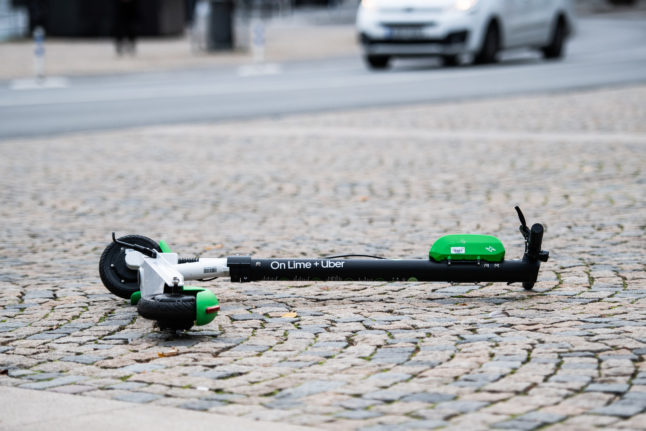From the 1st of September, it will be illegal to ride e-scooters on pavements.
Sweden’s infrastructure minister Tomas Eneroth made the announcement at a government event on July 28th.
“Now I can inform you that it’s the end of the line for e-scooters on pavements,” he said.
“It increases the risk of accidents. I have seen myself how anxious it makes many elderly people and people with disabilities when e-scooters rush past at high speed”, he said.
Eneroth added that it’s not a “human right” for people to make a mess by parking e-scooters wherever they like.
“There needs to be order on the roads. Playtime’s over.”
The rules mean that, from September 1st, you can get fined for riding an e-scooter on the pavement.
The decision comes into place at the same time as a rule that forbids parking e-scooters on pavements and cycle lanes.
With these new measures, e-scooters will now follow the same rules as traditional bicycles.
“Together, these new rules will improve the accessibility and safety for everyone who walks on pavements”, added Eneroth.



 Please whitelist us to continue reading.
Please whitelist us to continue reading.
So… does “pavement” mean “sidewalk” in this article?
Thanks,
-Christian